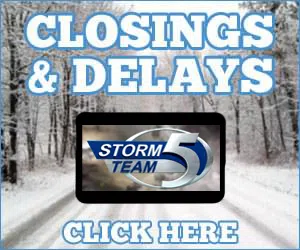(WFRV) – As of Wednesday, the 2025 bear hunting season is now officially open in Wisconsin, with DNR officials expecting hunters to have another quality year of bear hunting this fall.
According to a release from the Wisconsin Department of Natural Resources, over 32,000 people applied for the available 13,110 bear licenses this hunting season, with nearly 114,000 more people buying a preference point to improve their chances of drawing a license in a future lottery.
Green Bay Police Department providing reminders surrounding waterfowl hunting season
Officials say that the over 146,000 people who either applied for a hunting license or bought a preference point this year set a new record for bear hunting applications.
The bear hunting season in Wisconsin is open from September 3 to October 7. The DNR says it is important for hunters to know which management zone they are licensed to as each zone has its own specific bear hunting regulations.
The bear hunting regulations for each zone in Wisconsin are as follows:
Zones where dogs are permitted: Zones A, B, and D:
- Sept. 3 to Sept. 9 – with the aid of dogs only
- Sept. 10 to Sept. 30 – with the aid of dogs, with the aid of bait, with all other legal methods
- Oct. 1 to Oct. 7 – with the aid of bait, with all other legal methods not using dogs
Zones where dogs are not permitted: Zones C, E, and F:
- Sept. 3 to Oct. 7 – with the aid of bait, with all other legal methods not using dogs
Officials with the DNR say that Wisconsin has a thriving and expanding bear population with an estimated 24,000 animals living throughout the state, primarily in the northern and central Wisconsin forested regions, and with a slow but continued expansion trend towards the south of the state.
Careful and regulated harvest of bears is said to be the primary tool in helping keep the bear numbers balanced throughout the state. Hunting is also said to play a role in black bear research.
Grand Chute community thanks Chief Peterson for 45 years of service
The DNR reminds hunters that all bears must be registered by 5:00 p.m. the day following the recovery and two upper premolar teeth are to be submitted to the department as the samples help provide the DNR with important data that is used to ensure a healthy bear population in Wisconsin.
For more information on bear hunting regulations, click here.











